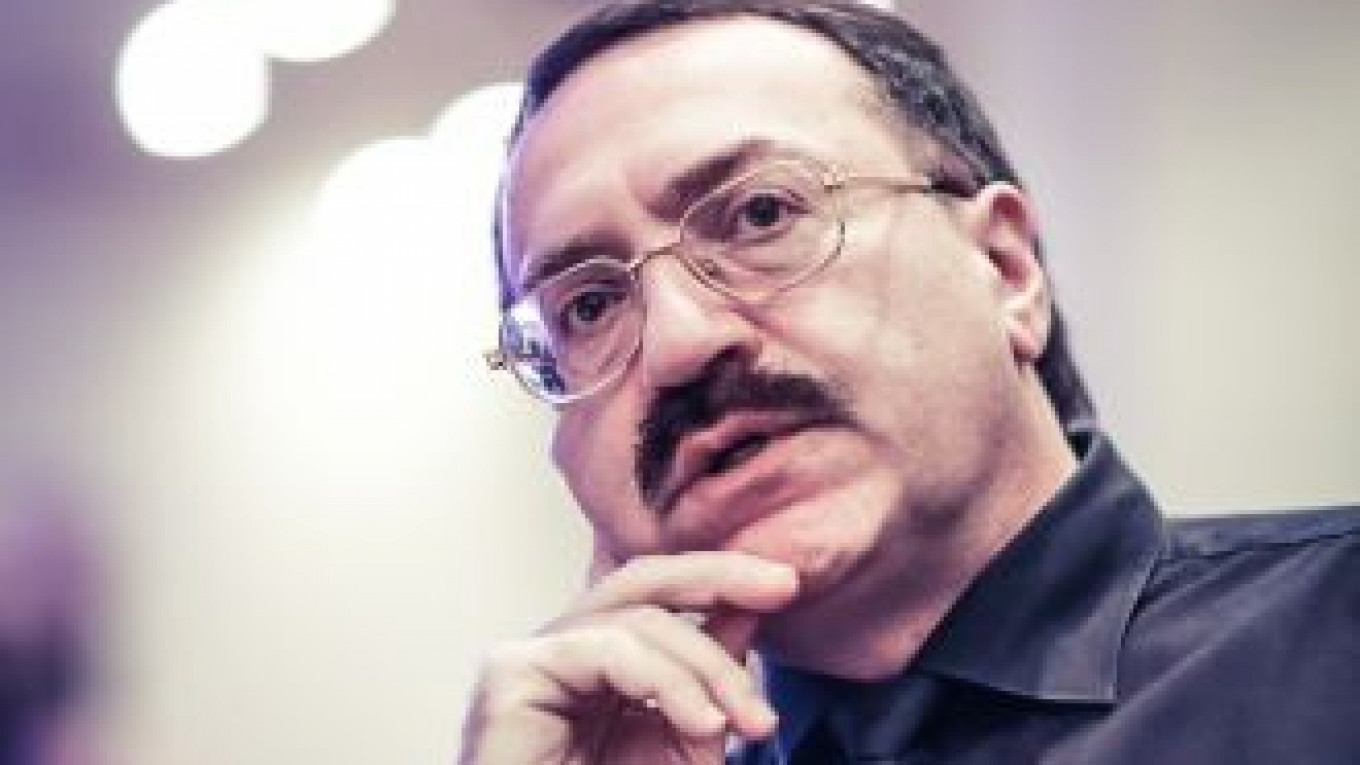In his early 50s, Russian jazz pianist and producer Daniel Kramer is still touring around Russia and abroad in what he describes as a nonstop regime.
In his last tour, which lasted 26 days and covered 20 cities, he traveled with young and ambitious jazz vocalist Polina Zizak, performing in small provincial towns like Snezhinsk and Alapayevsk, as well as larger cities like Yekaterinburg.
Kramer had to use all the connections that he has acquired over his long career as a jazz musician in order to organize such a difficult tour, as he confessed in a recent interview with The Moscow Times.
Kramer says that for him, it makes no difference whether he performs in front of a Parisian crowd or the provincial public. "People are people all around," Kramer says. "Besides music technique, an artist should be able to disclose his soul to himself and to people, he must touch himself and the audience really very deeply with the movement of soul."
Daniel Kramer is well-known for addressing young listeners, and for his extensive work with young and up-and-coming musicians. Kramer says that he looks back on his best teachers and, realizing how much help he received from them in his youth, feels that he must return the debts of expertise and experience to the next generations of jazz artists.
After all, having one's songs covered and reproduced by other artists is one of the strongest points of the jazz industry in Russia. Russian jazz musicians do care about those who come after them, and Kramer is honored to be copied.
Economic reasons also contribute to Kramer's work with young audiences, though the artist was reluctant to talk about it. The young audience for jazz music is growing rapidly, and the younger generation are spenders who love entertainment and do not shy away from leisure expenses.
Kramer is known to be a savvy entrepreneur in addition to a musician. He is well-known for his ability to follow the current moods and trends in the society and adjust his styles to the current market conditions.
His manner of playing the piano is impressive in terms of strength, devotion and passion. Kramer feels that a musician does not lose skill with age, but rather enriches his mastery and broadens his range of abilities.
Kramer has been playing jazz and organizing tours all his life without pause, and he feels that this is one of the secrets of his success. "Never give up, and you will be rewarded sooner or later," he says.
Kramer does have his own concerns — his pet peeve is the education system in Russia, which he feels is in dire need of repair. Another concern that strikes closer to his business interests is the abundance of chanson music, which competes for audiences with jazz musicians.
Particularly popular in the '90s, Russian chanson is a style of music focusing on singer-songwriters and urban romances. Certain types of chanson, called blatnaya pesnya include criminal themes.
Kramer feels that chanson culture has strong relationship with criminality, and says that such music "must not be cultivated in any civilized society," denouncing government support for chanson musicians.
Regardless of his anxieties, Kramer never stops playing and will be giving concerts in Moscow prior to whatever tour he decides to embark on next.
Daniel Kramer will play a charitable concert at the concert hall of the Vladimir Vernadsky Geological Museum, 11 Mokhovaya Ulitsa, Bldg. 2. Metro Okhotny Ryad. For more information, see the musician's website at www.kramerdaniel.com.
Contact the author at artsreporter@imedia.ru
A Message from The Moscow Times:
Dear readers,
We are facing unprecedented challenges. Russia's Prosecutor General's Office has designated The Moscow Times as an "undesirable" organization, criminalizing our work and putting our staff at risk of prosecution. This follows our earlier unjust labeling as a "foreign agent."
These actions are direct attempts to silence independent journalism in Russia. The authorities claim our work "discredits the decisions of the Russian leadership." We see things differently: we strive to provide accurate, unbiased reporting on Russia.
We, the journalists of The Moscow Times, refuse to be silenced. But to continue our work, we need your help.
Your support, no matter how small, makes a world of difference. If you can, please support us monthly starting from just $2. It's quick to set up, and every contribution makes a significant impact.
By supporting The Moscow Times, you're defending open, independent journalism in the face of repression. Thank you for standing with us.
Remind me later.






